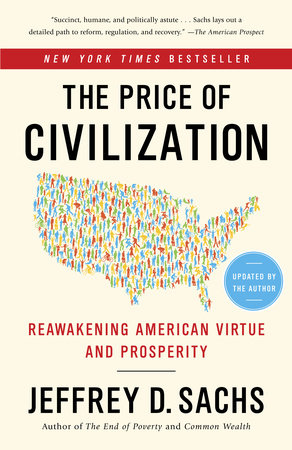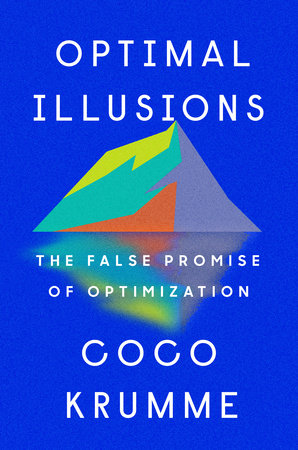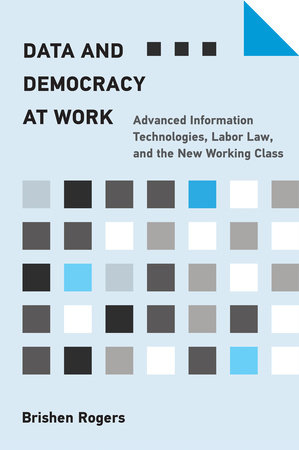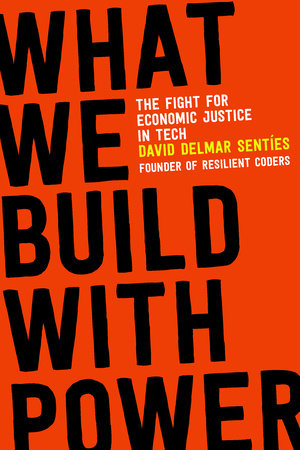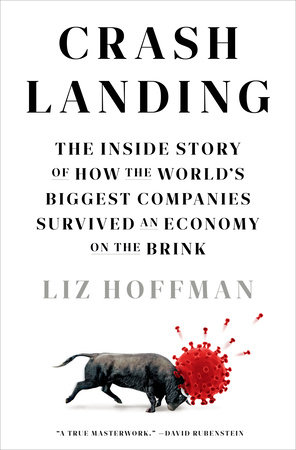Quick Summary
One Sentence Summary
Jeffrey D. Sachs’s “The Price of Civilization” is a compelling analysis of the economic and societal challenges facing the United States, offering pragmatic solutions for sustainable growth and social fairness.
Big Idea
Sachs argues that the U.S. has strayed from its path of shared prosperity and responsible governance, emphasizing the need for a new economic model that balances growth with social justice, environmental sustainability, and active civic participation.
Five Key Ideas
- Decline of Civic Virtue: Sachs highlights the erosion of civic virtue and social cohesion in American society, attributing it to rampant consumerism and a lack of ethical governance.
- Economic Imbalances: The book delves into the widening income inequality, diminishing social mobility, and the pitfalls of short-term thinking in economic policies.
- Political Dysfunctions: Sachs criticizes the influence of corporate lobbying and campaign financing in politics, leading to policies that often prioritize special interests over public welfare.
- Global Perspective: The importance of considering global interdependence and the U.S.’s role in addressing global challenges like climate change and poverty.
- Blueprint for Change: Sachs offers actionable strategies for reform, including tax reform, investment in education and infrastructure, sustainable environmental practices, and renewed civic engagement.
Actionable Advice
Advocate for and engage in transparent, ethical governance; support policies that promote equality and environmental sustainability; and actively participate in civic life to foster a more just and prosperous society.
About the Author
Jeffrey D. Sachs is a renowned economist, professor, and director of the Earth Institute at Columbia University, known for his expertise in sustainable development and his advocacy for addressing global challenges.
Read Next
To further explore similar themes, consider reading:
- “Capital in the Twenty-First Century” by Thomas Piketty, for a deep dive into wealth inequality.
- “The Social Contract” by Jean-Jacques Rousseau, for philosophical insights into civic responsibility.
- “Collapse: How Societies Choose to Fail or Succeed” by Jared Diamond, for understanding how societies respond to environmental and economic challenges.
In Depth
Decline of Civic Virtue
Jeffrey Sachs addresses the erosion of civic virtue in the United States, a core issue that permeates various facets of society. He argues that a blend of consumerism, misplaced priorities, and a detachment from community values has led to this decline. This shift has not only impacted social cohesion but also colored the way politics and economics function.
Sachs points out that the American Dream, once a symbol of hope and opportunity, has been overshadowed by materialism and individualism. People are more concerned with personal gains, often at the expense of communal well-being. This attitude extends to the political realm, where civic responsibility is frequently neglected.
An example Sachs discusses is the transformation of the healthcare system. He notes how healthcare, initially a service aimed at the public good, has become a profit-driven industry. This shift has led to significant disparities in access to health services, often leaving the most vulnerable behind. The emphasis on profit over people in healthcare exemplifies the decline of civic virtue.
The book also delves into the educational sector. Schools, which should be the nurturing ground for civic values, are increasingly focused on test scores and rankings. This narrow focus detracts from fostering a sense of community and civic responsibility in students.
Sachs writes:
“The loss of civic virtue among America’s political and economic elites has led to an increasingly divided and polarized nation.”
This quote encapsulates the broader implications of declining civic virtue. It’s not just about individual attitudes but also how those in power have strayed from principles of public service and responsibility.
The media plays a role too. Sachs criticizes the sensationalism and profit-driven nature of news outlets, which often prioritize entertainment over informative content. This shift has contributed to a less informed public, further eroding civic engagement.
Consumer culture is another driving force behind this decline. The relentless pursuit of material possessions has overshadowed the importance of community participation and social responsibilities. People are more connected to their gadgets than their neighbors, weakening the fabric of community life.
The decline of civic virtue, according to Sachs, has a ripple effect. It undermines trust in institutions, weakens social bonds, and creates an environment where short-term gains are prioritized over long-term communal well-being. It’s a cycle that perpetuates inequality and disengagement.
Sachs’s analysis is a call to action. It urges a reevaluation of values and priorities, emphasizing the need to foster a sense of community and responsibility. The revival of civic virtue is not just about individual transformation but also about systemic changes that prioritize the common good over personal gains.
Economic Imbalances
Jeffrey Sachs delves into the troubling economic imbalances in the United States. He highlights how income inequality and diminishing social mobility are corroding the fabric of American society. These imbalances aren’t just numbers; they represent real struggles for millions.
A striking example from the book is the widening income gap. Sachs points out that while productivity has increased, wages for the middle and lower classes have stagnated. This disparity isn’t just about money; it’s about access to opportunities, education, and a sense of security.
Sachs emphasizes the impact of these imbalances on social mobility. The American Dream, once attainable through hard work, now seems elusive for many. The rich get richer, and the poor face increasingly insurmountable barriers. This isn’t just unfair; it’s destabilizing.
He writes:
“The growing gap between rich and poor has turned the American economy into a zero-sum game, where the gains of the rich come at the expense of the poor and middle class.”
This quote underlines the harsh reality of these economic imbalances. It’s not just about differing incomes; it’s about a system that benefits a few at the cost of many.
Another aspect Sachs discusses is the focus on short-term gains in economic policies. This short-sightedness often overlooks long-term sustainability and equity. It’s like putting a band-aid on a deep wound; it might cover the issue temporarily, but it doesn’t heal it.
The housing market crisis serves as a detailed example. The push for short-term profits in the real estate and banking sectors led to reckless lending and speculative investments. This bubble, when it burst, didn’t just affect the big players; it devastated millions of ordinary people. Jobs were lost, homes were foreclosed, and life savings vanished. This crisis was a symptom of deeper economic imbalances and short-term thinking.
Sachs argues that these imbalances are not inevitable. They are the result of policy choices, societal values, and corporate practices. This means they can be addressed, but it requires a significant shift in priorities and policies.
The consequences of ignoring these imbalances are dire. They lead to social unrest, political polarization, and a general sense of despair. But Sachs doesn’t just highlight the problem; he suggests solutions. These include progressive taxation, investments in education and infrastructure, and policies that promote long-term sustainability over short-term profits.
Addressing economic imbalances is not just about fairness; it’s about the stability and future of American society. It requires a collective effort and a rethinking of what growth and success really mean. The challenge is significant, but the cost of inaction is far greater.
Political Dysfunctions
In “The Price of Civilization,” Jeffrey Sachs tackles the issue of political dysfunctions in the United States. He points to the troubling influence of corporate lobbying and campaign financing, which often results in policies favoring special interests over public welfare.
A detailed example Sachs provides is the healthcare debate. He illustrates how pharmaceutical and insurance companies wield significant influence over healthcare policies. Their lobbying efforts often lead to legislation that benefits their profits, sometimes at the expense of affordable and accessible healthcare for the general population.
Sachs states:
“The nexus of power between corporate lobbying and political decision-making has undermined the democratic process, leading to policies that serve the few rather than the many.”
This quote underscores the crux of the problem. The democratic process is compromised when money and corporate interests overshadow the needs and voices of the majority.
The issue extends beyond healthcare. Sachs discusses how the energy sector, particularly oil and gas companies, have influenced environmental policies. This influence often results in lenient regulations and subsidies for fossil fuels, hindering progress toward sustainable energy solutions.
Sachs criticizes the campaign finance system, arguing that it allows for disproportionate influence by wealthy donors and corporations. This system, he suggests, turns politicians into fundraisers who cater to those with deep pockets, rather than representatives who serve the public interest.
The book also highlights the revolving door between government and the private sector. Former politicians and government officials often take up positions in corporations, using their insider knowledge and connections to influence policies. This practice raises questions about conflicts of interest and the true motivations behind policy decisions.
Addressing these political dysfunctions, Sachs argues, is crucial for restoring trust in government and ensuring that policies reflect the will and needs of the people. He advocates for campaign finance reform, greater transparency in lobbying, and stricter regulations on the revolving door phenomenon.
Sachs’s analysis of political dysfunctions is not just a critique; it’s a call for a more equitable and democratic political system. It’s about ensuring that the government serves the public interest, not just the interests of the wealthy and powerful. This, he suggests, is essential for a just and prosperous society.
Global Perspective
Jeffrey Sachs, in “The Price of Civilization,” emphasizes the importance of adopting a global perspective. He argues that the United States needs to recognize its interconnectedness with the world, especially in addressing global challenges like climate change and poverty.
A key example Sachs discusses is climate change. He points out how the U.S., as one of the largest carbon emitters, has a critical role in global efforts to combat climate change. However, he also notes that often, domestic policies and economic interests overshadow the global implications of environmental decisions.
Sachs writes:
“In our interconnected world, the U.S. must understand that its actions have far-reaching consequences, and it must act responsibly on the global stage.”
This quote highlights the need for the U.S. to consider the global impact of its policies. It’s not just about domestic interests; it’s about global responsibility.
Sachs also delves into the issue of global poverty. He discusses how, in an interconnected world, poverty anywhere can have ripple effects, contributing to instability and crises that ultimately affect everyone. He argues for the U.S. to play a more active role in global development efforts, not just for ethical reasons, but for the sake of global stability and security.
The book further touches on the aspect of global economic interdependence. Sachs emphasizes that financial crises, like the one in 2008, are not contained within national borders. They can quickly become global issues, affecting economies and lives worldwide. This interdependence, he suggests, requires coordinated international policies and a shift from unilateral actions to global cooperation.
Sachs’s global perspective is not just about recognizing problems; it’s about seeking solutions that transcend national boundaries. He advocates for international collaboration in addressing climate change, poverty, and economic instability. It’s about understanding that in a connected world, national interests are often intertwined with global well-being.
In conclusion, Sachs’s call for a global perspective is a reminder that in an interconnected world, no country is an island. The challenges we face are shared, and so must be the solutions.
Blueprint for Change
In “The Price of Civilization,” Jeffrey Sachs doesn’t just diagnose problems; he offers a blueprint for change. He presents actionable strategies for reform, targeting economic, social, and political systems.
One detailed example Sachs offers is tax reform. He advocates for a more progressive tax system, where the wealthy pay their fair share. This reform isn’t about punishing success; it’s about ensuring that everyone contributes to the common good.
Sachs writes:
“A fair and just society is not possible without a tax system that ensures the rich contribute proportionately to the public welfare.”
This quote underscores the need for a tax system that supports equality and social welfare. It’s about creating a financial foundation for public services and social safety nets.
Sachs also emphasizes the importance of investing in education and infrastructure. These investments are crucial for long-term growth and equality. Education opens doors to opportunity, while infrastructure lays the groundwork for a thriving economy.
The book discusses sustainable environmental practices as part of the blueprint. Sachs urges a shift towards renewable energy and sustainable consumption. This change is necessary not just for the environment, but for economic stability and public health.
Another aspect of Sachs’s blueprint is renewed civic engagement. He calls for active participation in the democratic process and community life. This engagement is crucial for holding leaders accountable and ensuring that policies reflect the public interest.
Sachs’s blueprint for change is comprehensive. It touches on economic, social, and environmental aspects, understanding that these are interconnected. It’s a call for a holistic approach to reform, one that considers the long-term well-being of society as a whole.
Actionable Advice
- Advocate for Tax Reform: Support policies for a progressive tax system where the wealthy pay a fair share.
- Invest in Education: Push for increased funding and resources for education to enhance opportunities and equality.
- Promote Infrastructure Development: Lobby for investments in modern infrastructure for long-term economic growth.
- Shift to Renewable Energy: Encourage and adopt sustainable energy practices to combat climate change.
- Reduce Consumption: Practice and promote sustainable consumption habits for environmental and economic stability.
- Engage in Civic Activities: Actively participate in community and political processes to ensure accountable governance.
- Support Campaign Finance Reform: Back initiatives aimed at reducing the influence of money in politics.
- Promote Global Cooperation: Advocate for international collaboration on issues like poverty reduction and climate action.
- Embrace Long-term Economic Policies: Push for policies that prioritize long-term stability over short-term gains.
- Educate and Inform: Stay informed and educate others on these issues to build a knowledgeable and engaged society.
About the Author
Jeffrey D. Sachs is a renowned economist, educator, and author. Born on November 5, 1954, in Detroit, Michigan, Sachs has made significant contributions to the fields of economic development, global poverty, and sustainability. Holding a Ph.D. from Harvard University, he has taught at prestigious institutions like Harvard and Columbia University. Sachs is best known for his role as a special advisor to United Nations Secretaries-General on Millennium Development Goals. His work often focuses on ending poverty, promoting economic sustainability, and addressing climate change. A prolific writer, Sachs has authored influential books like “The End of Poverty” and “Common Wealth.” He believes in evidence-based solutions to global challenges and emphasizes the importance of global cooperation. Sachs advocates for ethical considerations in economics and underscores the need for sustainable development practices. His life and work reflect a deep commitment to using economics as a tool for social betterment and global progress.
Read These Next
You might like these similar books
- “The End of Poverty” by Jeffrey D. Sachs
- “Common Wealth: Economics for a Crowded Planet” by Jeffrey D. Sachs
- “The Globalization Paradox: Democracy and the Future of the World Economy” by Dani Rodrik
- “Capital in the Twenty-First Century” by Thomas Piketty
- “Development as Freedom” by Amartya Sen
FAQ
Q: What is the main theme of “The Price of Civilization”?
A: The book focuses on the economic, social, and political challenges facing the United States, advocating for reforms and a more equitable society.
Q: Who wrote “The Price of Civilization”?
A: Jeffrey D. Sachs, an economist and professor, is the author.
Q: Does the book offer solutions to the problems it discusses?
A: Yes, Jeffrey Sachs provides a blueprint for change, offering actionable strategies for economic, social, and political reform.
Q: Is “The Price of Civilization” suitable for readers without an economics background?
A: Absolutely. The book is written in accessible language, making it suitable for a wide audience.
Q: Does the book address global issues?
A: Yes, it emphasizes the importance of a global perspective in addressing challenges like climate change and poverty.

